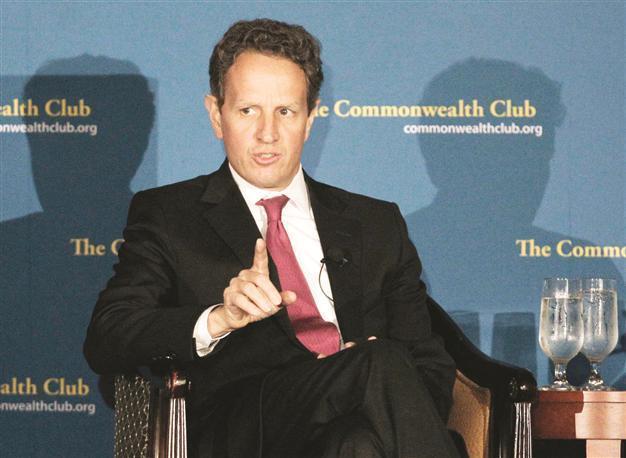US pushes China to allow yuan’s rise, speed reforms
BEIJING- Agence France-Presse

US Treasury Secretary Geithner says the yuan appreciated by around 13 percent against the US dollar over the past two years. AP photo
U.S. Treasury Secretary Timothy Geithner yesterday urged China to allow its currency to strengthen further and push forward economic reforms, which he said were crucial to the global recovery.U.S. officials have long accused Beijing of keeping the value of the yuan artificially low to boost exports, leading to a massive Chinese trade surplus with the United States.
Geithner said China’s currency had appreciated by around 13 percent against the US dollar over the past two years, but urged more gains.
“We consider particularly important the emphasis on reforms to... continue the appreciation of the renminbi (yuan) against the dollar and the other major currencies,” Geithner said.
“A stronger, more market-determined (yuan) will help reinforce China’s reform objectives.” He was speaking at the annual Strategic and Economic Dialogue, which has been upstaged by the case of blind Chinese activist Chen Guangcheng who on May 2 left the U.S. embassy where he had sought refuge after fleeing house arrest last week.
Competition for foreigners
Geithner said China should move forward with economic reforms, including allowing more foreign competition in its tightly guarded markets. “We meet at a time of risk and challenge in the global economy and we both face considerable economic challenges at home,” Geithner said.
“In China, you are in the process of exploring the next frontier of economic reforms, recognizing as your predecessors did more than 30 years ago that future economic growth will require another fundamental shift in economic policy.
“The United States has a strong interest in the success of these reforms, as does the rest of the world.” Such reforms included relying more on domestic consumption than exports to drive the world’s second largest economy, allowing private firms a greater role than state-owned giants and modernising the financial system, he said.
A U.S. official saw progress in some areas after China shifted its position to agree to abide by international rules on providing credit to exporters, a source of friction with other major economies.
















